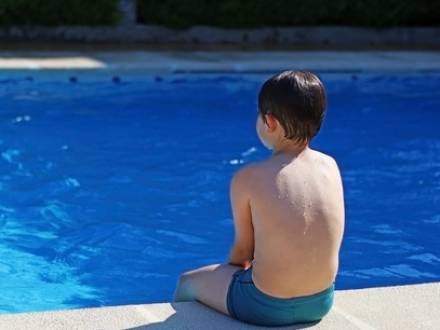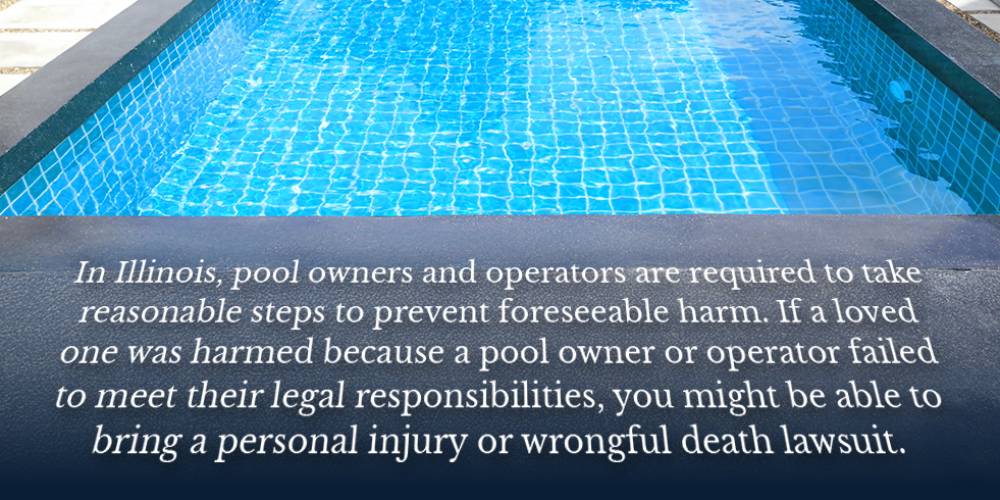Swimming Pools Pose Serious Injury and Drowning Hazards in the Summer
 Summer in Illinois often means long afternoons by the pool, whether in a backyard, at a friend’s home, or at a public facility. While swimming is a favorite warm-weather activity, it comes with risks that can lead to catastrophic injuries or even death. Every year, families across the country are devastated by pool-related tragedies that could have been prevented with proper safety measures.
Summer in Illinois often means long afternoons by the pool, whether in a backyard, at a friend’s home, or at a public facility. While swimming is a favorite warm-weather activity, it comes with risks that can lead to catastrophic injuries or even death. Every year, families across the country are devastated by pool-related tragedies that could have been prevented with proper safety measures.
At Mannarino & Brasfield, A Division of Schwartz Jambois, our Winnebago County, IL personal injury lawyers have seen firsthand how quickly a day of fun can turn into a life-altering event. With a history of winning millions in large verdicts and settlements, we fight for injured people and families who have lost loved ones in swimming pool accidents. We are a dedicated practice backed by a team of over 20 attorneys and several paralegals, so you get both the personalized attention and the resources you need to win.
How Common Are Swimming Pool Injuries and Fatalities?
Drowning is the leading cause of unintentional injury-related death among children ages one to four, according to the Centers for Disease Control and Prevention (CDC). However, drowning is only one of the serious hazards associated with pools. Others include:
-
Brain injuries caused by oxygen deprivation during near-drowning events
-
Spinal cord injuries from diving into shallow water
-
Slips and falls on wet surfaces surrounding the pool
-
Electrocution from faulty pool lighting or electrical equipment
-
Chemical burns or respiratory injuries from improper chlorine or chemical levels
These incidents can occur in public pools, hotel pools, apartment complex pools, water parks, or private residential settings. Regardless of location, property owners and operators have a legal duty to maintain safe conditions.
Illinois Laws About Swimming Pools and the Duties of Pool Owners
In Illinois, pool owners and operators are required to take reasonable steps to prevent foreseeable harm. This duty includes following applicable local safety ordinances, ensuring equipment is in working order, and supervising when necessary. The Illinois Swimming Facility Act (210 ILCS 125/1) and the Swimming Pool and Bathing Beach Code regulate public pools, while premises liability laws govern private pools.
Property owners can be held liable for injuries if they fail to:
-
Install required barriers and self-closing gates to prevent unsupervised access, especially by children.
-
Maintain safe water depth markings and post "No Diving" signs where appropriate.
-
Keep pool decks free from dangerous slip hazards.
-
Ensure life-saving equipment, such as rescue poles and flotation devices, is available.
-
Comply with safety standards for drains and filtration systems to prevent entrapment.
When an owner or operator fails to meet these standards and someone is injured or killed, they may face a personal injury or wrongful death lawsuit.
The Liability Differences Between Public Pools and Private Pools
While public pools are more heavily regulated, private pool owners can also face legal consequences if their negligence causes harm. Even if someone enters without permission, Illinois law recognizes the "attractive nuisance" doctrine, which says property owners are responsible for dangerous conditions that are likely to attract children.
For example, if a homeowner does not secure a backyard pool with a fence and a child wanders in and drowns, the homeowner may still be responsible, despite the child not having permission to be there. Public entities, such as park districts or municipalities, may also be liable for injuries at their facilities, though claims against them require compliance with strict notice and filing deadlines under the Local Governmental and Governmental Employees Tort Immunity Act.

Wrongful Death Claims After a Pool Tragedy
When a swimming pool accident results in death, surviving family members may pursue a wrongful death claim. In Illinois, these claims can seek compensation for funeral expenses, loss of income, loss of companionship, and emotional suffering. The statute of limitations for wrongful death lawsuits in Illinois is generally two years from the date of death, but certain exceptions may apply.
Having an attorney with experience in both personal injury and wrongful death cases is essential. This firm’s attorneys understand how to gather evidence, work with experts to reconstruct events, and negotiate with insurance companies to secure maximum compensation for grieving families.
Proving Negligence in a Swimming Pool Injury Case
To win a swimming pool injury or wrongful death case, you must prove several things. First, you will need to show that the pool owner or operator owed you or your loved one a duty of care. Second, you will need to show that the duty of care was breached through negligence. Third, that breach has to have caused the injury or death you or your loved one suffered. Finally, there must be damages as a result, whether financial, emotional, or both.
For example, the parent of a child who has drowned may not suffer financially compared to the child of a parent who drowns. Nevertheless, the grief of losing a child is certainly considered damages worthy of compensation in wrongful death cases.
Common Defenses Pool Owners Use to Avoid Liability
Pool owners and operators may try to avoid responsibility by arguing that the injured person assumed the risk of swimming, that warning signs were posted, or that the injured person was trespassing. An experienced lawyer can challenge these defenses by showing, for example, that the risks were not clearly disclosed, that posted warnings were unclear or nonexistent, or that the injury occurred due to hazards the victim could not have reasonably anticipated.
Contact a Rockford, IL Swimming Pool Injury Attorney
Swimming pool injury and wrongful death cases can be complex, often involving multiple parties, from homeowners and landlords to pool management companies and municipalities. They also require a deep understanding of both premises liability law and the technical safety standards that govern pool operation.
If you or a loved one has suffered a serious injury or drowning accident at a swimming pool, we can help you pursue the compensation you deserve. Contact one of our Winnebago County, IL wrongful death lawyers at Mannarino & Brasfield, A Division of Schwartz Jambois, by calling 815-215-7561 to schedule your free consultation. With contingency fee billing and a history of winning significant verdicts, this firm is prepared to fight for justice for you and your family.



